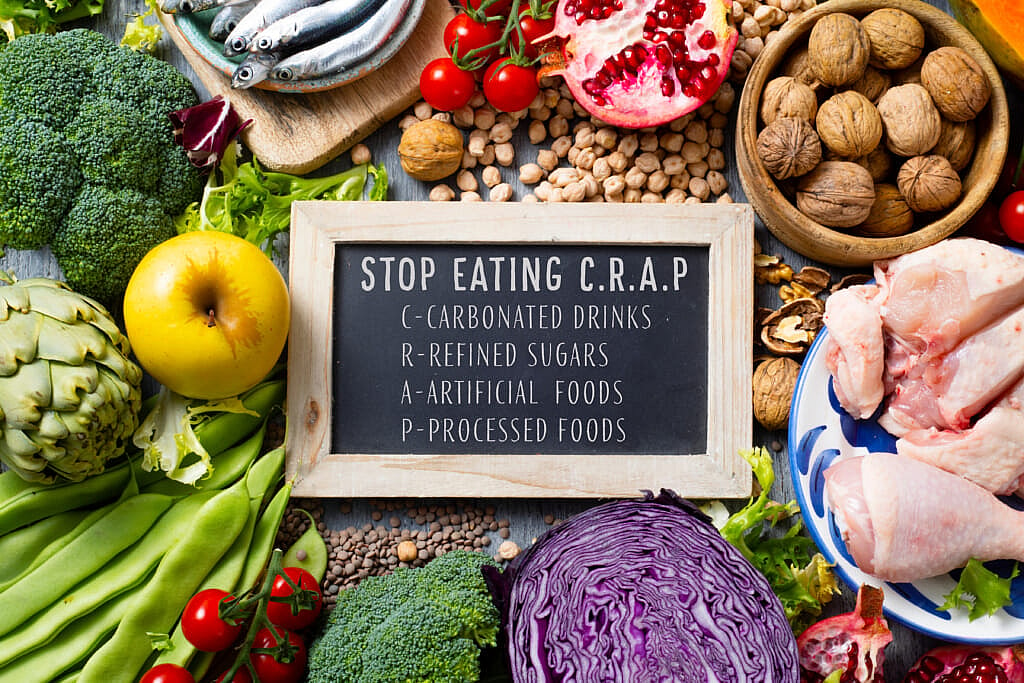Here’s something that may come as no surprise: Eating a lot of ultra-processed foods is not good for your health.
According to CNN, two new, extensive studies of people in the United States and Italy published this week in The BMJ (British Medical Journal) found that eating large quantities of ultra-processed foods can cause heart disease and early death in both men and women. These foods include sauces, frozen pizza, hot dogs, french fries, store-bought cookies, cakes, candies, doughnuts and ice cream.
“Literally hundreds of studies link ultra-processed foods to obesity, cancer, cardiovascular disease, and overall mortality,” said Marion Nestle, the Paulette Goddard professor emerita of nutrition, food studies and public health at New York University, CNN reported.

Nestle, who was not involved in either study, has also authored numerous books on food politics and marketing. “These two studies continue the consistency: Ultra-processed foods are unambiguously associated with an increased risk for chronic disease,” she noted.
The U.S.-based study looked at the diets of more than 200,000 men and women for up to 28 years and discovered a link between ultra-processed foods and colorectal cancer — the third most common cancer in the country — in men, but not in women, according to CNN.
Several organizations, including the American Cancer Society, have also found that eating processed and ultra-processed meats such as ham, bacon, salami and hotdogs, has long been linked to a higher risk of developing bowel cancer in both men and women.
But the latest research discovered that all forms of ultra-processed food contributed in some way.
“We found that men in the highest quintile of ultra-processed food consumption, compared with those in the lowest quintile, had a 29% higher risk of developing colorectal cancer,” said co-senior author Fang Fang Zhang, a cancer epidemiologist and chair in the Friedman School of Nutrition Science and Policy at Boston’s Tufts University.
Zhang also noted that men were more likely to have a higher risk of bowel cancer if they consumed lots of ready-to-eat foods, as well as beverages with added sugar.
These ultra-processed foods, Zhang explained, are typically industrial ready-to-eat or heat concoctions created using components taken from foods or synthesized in laboratories, usually containing little or no whole foods. They are also a big part of diets in the United States.
“Americans consume a large percentage of their daily calories from ultra processed foods — 58% in adults and 67% in children,” Zhang said, CNN reported. “We should consider substituting the ultra processed foods with unprocessed or minimally processed foods in our diet for cancer prevention and prevention of obesity and cardiovascular diseases.”
It is unclear why the study found a lower incidence of colorectal cancer in women, but according to Zhang, it may be because of the varied roles that obesity, sex and metabolic hormones play in men and women. She also said the study found that eating more ultra-processed dairy products, such as yogurt, was linked to a lower risk of colorectal cancer in women.
The second study, which began in 2005, tracked more than 22,000 individuals over a 12-year period in the Italian province of Molise. Its initial goal was to evaluate the risk factors for heart and brain disease as well as cancer.

It measured the effects of nutrient-poor diets — such as those high in sugar and saturated or trans fats — versus ultra-processed food diets on chronic illness and early death. The BMJ analysis revealed that both types of diets contributed to early death, specifically from cardiovascular problems.
However, the first author and epidemiologist Marialaura Bonaccio of the IRCCS Neurologico Mediterraneo Neuromed in Pozzilli, Italy, said when researchers looked at the two types of food to see which one contributed the most, they found that ultra-processed foods were “paramount to define the risk of mortality.”
Eighty percent or more of the meals labeled as nutritionally harmful were also ultra-processed, according to a statement from Bonaccio, CNN reported.
“This suggests that the increased risk of mortality is not due directly (or exclusively) to the poor nutritional quality of some products, but rather to the fact that these foods are mostly ultra-processed,” Bonaccio said.
Some researchers recommend eating ultra-processed foods in moderation as they continue to investigate the exact effects it has on the body as well as the reasoning, while others recommend zero consumption.
“The effects of ultra-processed foods are quite clear. The reasons for the effects are not yet known,” said Nestle, according to CNN. “It would be nice to know why, but until we find out, it’s best to advise eating ultra-processed foods in as small amounts as possible.”
Dr. Robin Mendelsohn, a gastroenterologist at Memorial Sloan-Kettering Cancer Center in New York City, who was also not involved in either study, suggests a clean break from ultra-processed foods.
“While some ultra-processed foods may be considered healthier than others, in general, we would recommend staying away from ultra-processed foods completely and focus on healthy unprocessed foods — fruits, vegetables, legumes,” she told CNN.
TheGrio is FREE on your TV via Apple TV, Amazon Fire, Roku and Android TV. Also, please download theGrio mobile apps today!

